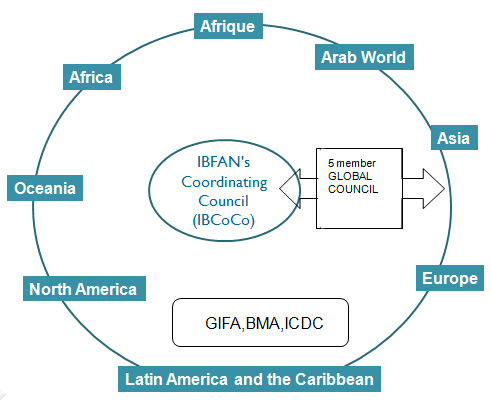
Our Governance
IBFAN’s Nine Regional Offices are: Africa, Afrique, Arab World, East Asia, Europe, Latin America and the Caribbean, North America,South Asia and SouthEast Asia.. IBFAN has four Global Programme Offices: the Global Liaison Office hosted by Geneva Infant Feeding Association (GIFA), the International Code Documentation Centre (ICDC) hosted by IBFAN Penang; the Global Codex Alimentarius Programme hosted by Infact Canada and the International Campaigns Office hosted by Baby Milk Action (UK).
About Us

IBFAN’s Coordinating Council (IBCoCo) is IBFAN’s highest Governing Body. IBCoCo is composed of the eight regional coordinators, of members of their regional Boards elected by regional assemblies, and of representatives of IBFAN’s four Global Programmes. IBCoCo meets every two years to set policy and strategic priorities, plan coordinated action, and discuss administrative and financial matters. In the interim between the IBCoCo meetings, the IBFAN Global Council (G5) of elected representatives follows up on the IBCoCo decisions. G5 meets periodically by Skype and forwards minutes of meeting to IBCoCo.
IBFAN GLOBAL COUNCIL MEMBERS
- Dr Marcos Arana Co-Chair
IBFAN Mexico
- Nomajoni Ntombela
Co-Chair, IBFAN Africa
- Elisabeth Sterken
IBFAN North America
- Ines Fernandes
IBFAN SE Asia
- Patti Rundall
Baby Milk Action IBFAN UK

IBFAN’s principles for avoidance of conflicts of interest
The participating public interest NGOs bring particular value-added to the gBICS through their firm stand on the need to avoid or adequately manage conflicts of interest.The influence of the baby food industry in research, the medical profession and in policy-setting is pervasive, both through direct sponsorship and through Public-Private for profit Partnerships (PPfpPs).
One of the key principles is the need to protect the public interest:
Policies and programmes on infant and young child feeding can be designed, developed and implemented in the public interest only if professionals and institutions/organizations responsible for them engage in informed decision-making. This means applying principles of transparency and putting safeguards in place that eliminate unacceptable conflicts of interest and also permit to manage appropriately those that cannot be avoided. Avoidance and/or adequate management of conflicts of interest apply equally to protection of integrity of scientific research, objectivity of professional education and quality of care/counselling/advice. We thus also analyze situations of conflicts of interest created by corporate sponsorship of conferences, meetings, workshops and call on organizers to critically reflect on sources of financing that create conflicts of interest.

